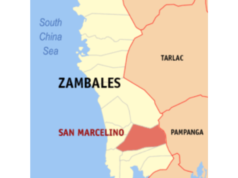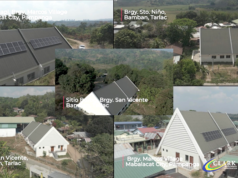It was a last-minute decision, at the “last two minutes,” after many months of agony. I filed at 3 p.m. at the hour of Divine Mercy because I need all the mercy I can get from Most High.
The day before, Dick Gordon and I were assessing options and chances. By the end of the day we said it wouldn’t work. There were practical considerations – funds, organization and voter profile. After months of long debate in my mind, I reached a stalemate and said no. But I had this burning desire to serve and help make things right. I awoke the next morning, with a heavy heart. Shortly after, I used my heart to break the stalemate. In a few hours I was at the Comelec.
I’m running with Dick Gordon under the Bagumbayan banner to serve the country and our people as stewards.
We’re responding to the call for ethical leadership and good government. I bring with me a track record of service driven by the principle of unity in diversity to include those in the peripheries. What I’ve done in my life so far reflects my sincerity and capacity to serve.
If the Filipino people want me they can have all of me.
The idea of returning to public life took root in Bacolod last year during a beer bust with classmates after a board meeting at my alma mater, University of St. La Salle, that taught us to keep faith and to serve the community. After scanning the environment, we said we couldn’t yet relax; that our work was unfinished and that we were still needed at the front lines to build a nation for our children.
We discussed private sector investments; social action initiatives; and public service, either as appointed or elected officials at the local and national governments. We talked about funding scholarship programs; reforestation; business initiatives to create new wealth and more jobs through food and energy security. Some of us were incumbent officials and others, like me, were former public servants.
Our reunion came at a time when I was being prodded by the idea of returning to public life, dismayed by almost two decades of aggravating and ruinous governance. Shortly after that, I got public exposure through the positions I took on the West PH Sea dispute with China; the FAB-VABBBL’s defective peace process and its constitutional infirmities; and the MILF’s massacre of 44 Special Action Force (SAF) commandos in Mamasapano. The more these issues churned, the more I was pushed to the electoral arena.
Electoral politics for a rookie like me, however, is indescribably daunting. I have no illusions. Although I’ve been heavily exposed to two presidential campaigns in the past, helping manage a candidate is different from being the candidate itself. More so with limited resources and stiff competition from grizzled veterans in Philippine- style free-for-all politics.
Gunning for victory calls for lots of hope, prayers and perspiration to win over the electorate.
On October 16, there were 130 who filed for President; 19 for Vice-President; and 172 for Senator. The Comelec is set to screen the nuisance bets and reduce the list, retaining those with a reasonable chance of victory. The Omnibus Election Code defines a nuisance candidate as someone that puts the election process in mockery or disrepute; causes confusion among the voters; or acts in other ways to prevent a faithful determination of the true will of the electorate.
Now, here’s a harsh reality.
Securing funding support is like a chicken and egg situation.
Funders won’t lay a bet unless one’s ratings are up. That’s the advantage of incumbents and people in the limelight like those in media and the arts. Rookies like me have to muster sufficient courage to jump in, get noticed and, hopefully, find risk-takers to give for the start-up (no start-up, no contest), and add more to the kitty as the chances of winning improve along the way.
More than 100 years ago, Jose Rizal asked what the Filipino would be like a century hence. The epic box-office hit Heneral Luna brought out the stark truth that our “ugali” has not changed. Filipinos who saw the movie couldn’t have missed the sameness of our “ugali,” then and now, and in between: self before country; self before others. We’re still
feudal in character that drives the never-ending cycle of entitlement, exclusion, injustice, impunity, poverty and conflict. We richly deserve a “Punyeta!”
Let’s think of the Philippines as the family of families, as the sum of its parts. Now, think how many families are broken or separated by the impact of feudal practices from Luzon to Mindanao. How can the Philippines move ahead when many of its parts need serious fixing? What do we need to do to reunite the families, heal their wounded spirit, restore their trust and confidence, and invigorate the country to move with deliberate speed in the right direction?
We – the rich and poor, young and old of this country – should discuss it, reach consensus and act accordingly.
If we want to move ahead with no one left behind, we must first think in terms of changing our “ugali” for the long pull. We need to be a changed Filipino, and a changed Philippines, 100 years from now. Transforming the country begins with self – that is the real meaning of the Spirit of EDSA. It can’t be any other way; and better voluntary than from the barrel of a gun. We, “tayo mismo,” are the problem but we are also the solution to our self-inflicted wounds.
(The author served as Tourism Secretary under President Cory Aquino and Interior and Local Government Secretary in the administration of President Fidel V. Ramos)




